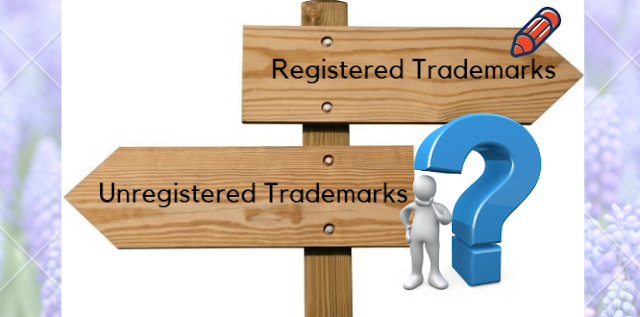The import and export of counterfeit goods or goods that violate intellectual
property rights have been causing huge loss to the intellectual property rights
owner. The government’s process to control such will help utilize the
resources in the society and encourage the innovative companies to invest in
products in quality, designs, build trademarks… and ensure their intellectual
property rights are protected and they could benefit from such. When the owner
of property rights scans the market and find the violation of intellectual
property rights, they could appoint intellectual property attorney to work with
authorities and have proper legal solutions, including requesting the customs
authority to suspend the customs clearance.
As part of the
international integration process into world trade, Vietnam has gradually
issued legal instruments to strengthen tools for managing the potential
violations especially in intellectual property areas.
On March 6, 2020, the
Ministry of Finance issued Circular no. 13/2020/TT-BTC on amending and
supplementing a number of articles of Circular no. 13/2015/TT-BTC dated January
30, 2015 providing for inspect, supervise and temporarily suspend customs
procedures for exports and imports subject to intellectual property protection;
controlling counterfeit goods and goods infringing intellectual property rights.
Under point b, clause 1,
Article 1 of Circular no. 13/2020/NTT-BTC, customs control of counterfeit goods
and goods infringing intellectual property rights means the application of
professional customs control measures or/and other professional measures
implemented by customs authority according to the provisions of law to prevent
and combat smuggling and illegal transportation of goods being counterfeit
goods and goods infringing intellectual property rights in the geographical
areas of customs operation. Compared with the provisions of Circular no.
13/2015/TT-BTC, the scope of customs control for counterfeit goods and goods
infringing intellectual property rights is expanded, not only borders,
non-tariff areas.
The Ministry of Finance
supplements cases of refusal to receive applications for inspection and
supervision of export and import goods that require protection of intellectual
property rights of organizations or individuals, specifically: may refuse to
accept applications if additional submissions are within 10 working days from
the date of the notice of additional submission.
Besides, amending and
supplementing regulations on handling of goods showing signs of intellectual
property rights infringement. Within 03 working days after receiving the notice
of goods showing signs of infringement of intellectual property rights of the
customs office, if the intellectual property right holder or the lawfully
authorized person does not have the request for suspension of customs
procedures is completed, the customs authority will continue to carry out the
customs procedures. In case the intellectual property right owner or the
lawfully authorized person does not have a written request for temporary
suspension of customs procedures but pays a sum of money or guarantee documents
as prescribed or have a written request for temporary suspension of customs
procedures but do not pay a sum of money or guarantee documents as prescribed,
the Sub-department of Customs where customs procedures are carried out does not
suspend customs procedures for goods, unless it is detected counterfeit goods on
intellectual property. In contrast, if the intellectual property rights owner
of goods requests the suspension of customs procedures, the Sub-department of
Customs where the customs procedures are carried out shall issue a decision on
suspension of customs procedures. In cases where there are sufficient grounds
to identify goods infringing upon intellectual property rights, the Director of
the Customs Sub-Department shall consider deciding to immediately apply
handling measures prescribed in Articles 214 and 215 of the Law on Intellectual
Property 2005, at the same time, coordinate with control forces at all levels
to collect information, investigate and verify goods to handle according to
regulations. The time limit for suspension of customs procedures is 10 working
days from the date the customs authority issues a decision to suspend customs
procedures. In addition, different from the previous regulations, the person
who requests for temporary suspension of customs procedures may extend the time
limit (if there is a plausible reason) if paying additional money or guarantee
documents, the extended time limit; the extended period shall not exceed 10
working days from the expiry of the suspension period as prescribed in clause
8, Article 1 of Circular no. 05/2020/TT-BTC.
Regulations on
suspension of customs procedures for detecting signs of infringement of
intellectual property rights are provisions to protect goods that have been
registered for intellectual property rights. Intellectual property is the most
valuable type of intangible asset to every enterprise. When an enterprise has
trademarks, inventions, industrial designs… applied to products that are
registered for intellectual property rights, these intellectual property
objects will become the property of the enterprise, and giving the company a
lot of advantages on monopoly rights and protection policies and such should be
protected properly with the help of intellectual property lawyers.
This Circular is
effective from April 20, 2020. Organizations and individuals exporting or
importing goods; Organizations and individuals that are owners of intellectual
property rights, owners of genuine goods which are counterfeited or lawful
representatives of owners need to follow and comply with the provisions of law
to know and protect their rights.
ANT Lawyers - A Law firm in Vietnam is supported by a team of experienced patent, trademark, design
attorneys with qualification and skills handling full range of legal services
relating to intellectual property rights in Vietnam. We have specialized in the preparation and
registration of patents, trademarks and designs for our clients.





























